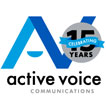 When I was growing up, the internet was still in its infancy. (Man, do I feel old.) So, as a kid, I had to do most of my research from books. I used card catalogs and, later, unfathomably slow (by today’s standards) computer searches, to find these books.
When I was growing up, the internet was still in its infancy. (Man, do I feel old.) So, as a kid, I had to do most of my research from books. I used card catalogs and, later, unfathomably slow (by today’s standards) computer searches, to find these books.
For my school research projects starting at a very young age, one thing that was made clear to me was that I had to learn how to identify a reliable source. And I always had to cite my sources.
Thanks to the internet, the process of research may be faster today, but verifying facts isn’t always easy. Teaching journalism students at ASU, I spent entire lectures on research, extolling the virtues of primary sources (that’s not Wikipedia, guys) and offering tips for seeking out the best, most reliable, most credible information available. After all, journalism without reporting is fiction.
After all, journalism without reporting is fiction.
The internet has its upsides for sure. There are some really useful things there. There are some great tools there. And let’s face it, there’s some hilarity there.
But, especially during this election season, it’s troubling how much false information abounds. Photoshopped pictures of celebrities wearing campaign shirts. Incorrectly attributed quotes pasted onto images. Straight-up lies that are shared and retweeted a thousand times over. But repetition does not imply accuracy. And for the record, I’m not perfect. I’ve probably contributed to the problem myself.
The problem goes beyond my frustration over the clearly-full-of-false-information email forwards I receive. I can take a deep breath and delete the email. But this is a bigger problem. A lack of accurate information makes it impossible for us to make good decisions — about our healthcare, where we send our kids to school, the products we buy, the leaders we elect. How can we have civil discourse without a consensus on the raw facts? And the proliferation of falsehoods will only continue to worsen unless we as individuals take responsibility and take action.
But the internet is SO BIG … What can we do? Here are a few things I’d love us all to start doing today.
1. Employ your critical thinking skills.
When you see information, look for the source. Ask yourself if it’s reputable. Ask yourself if the information makes rational sense. Type some of the main points into a search engine and you’ll probably find a series of news stories confirming the story or a Snopes.com page debunking the story. A lot of times we forward or share something even though in the back of our minds, we aren’t confident it’s true. All it takes is an extra few seconds to pause and ask: Does this really make sense?
2. Seek out primary sources.
What do I mean by that? Let me give you an example. Earlier this year I was writing about domestic violence. There was one statistic I continued to find repeated time and again. Experts relayed it in interviews on CNN. It was repeated in major publications. Anyone who linked to the source was not linking to a primary source. They were all just linking to one another. After hours of research, I never could find the original reporting of this statistic. So I refused to use it in the article. And if you’re writing for public consumption, it’s important to seek out those primary sources. “According to CNN” doesn’t cut it. Do the work to find the original source.
3. Research before you share.
I know it’s getting harder and harder these days to know which outlets are worthy of your trust. But before you share that meme on Facebook or retweet that funny photo, I urge you to take just a few minutes to do some research on your own. Help stop the spread of falsehood. I encourage you to do this at work and at home. On the internet and in person. Yes, it might take one second to press “share,” but it often doesn’t take more than five minutes to confirm accuracy.
Social media and the advent of blogging has meant that we’ve all become citizen journalists; we’ve all become our own publishers. But part of the responsibility of a journalist is to try to verify facts. I know many of you are disappointed in the way some journalists have done their jobs. And indeed, we can all do better. So, start by stepping up your own game. Become a critical thinker, a researcher, a fact checker. Make the internet a more accurate — and to me, that means better — place.
